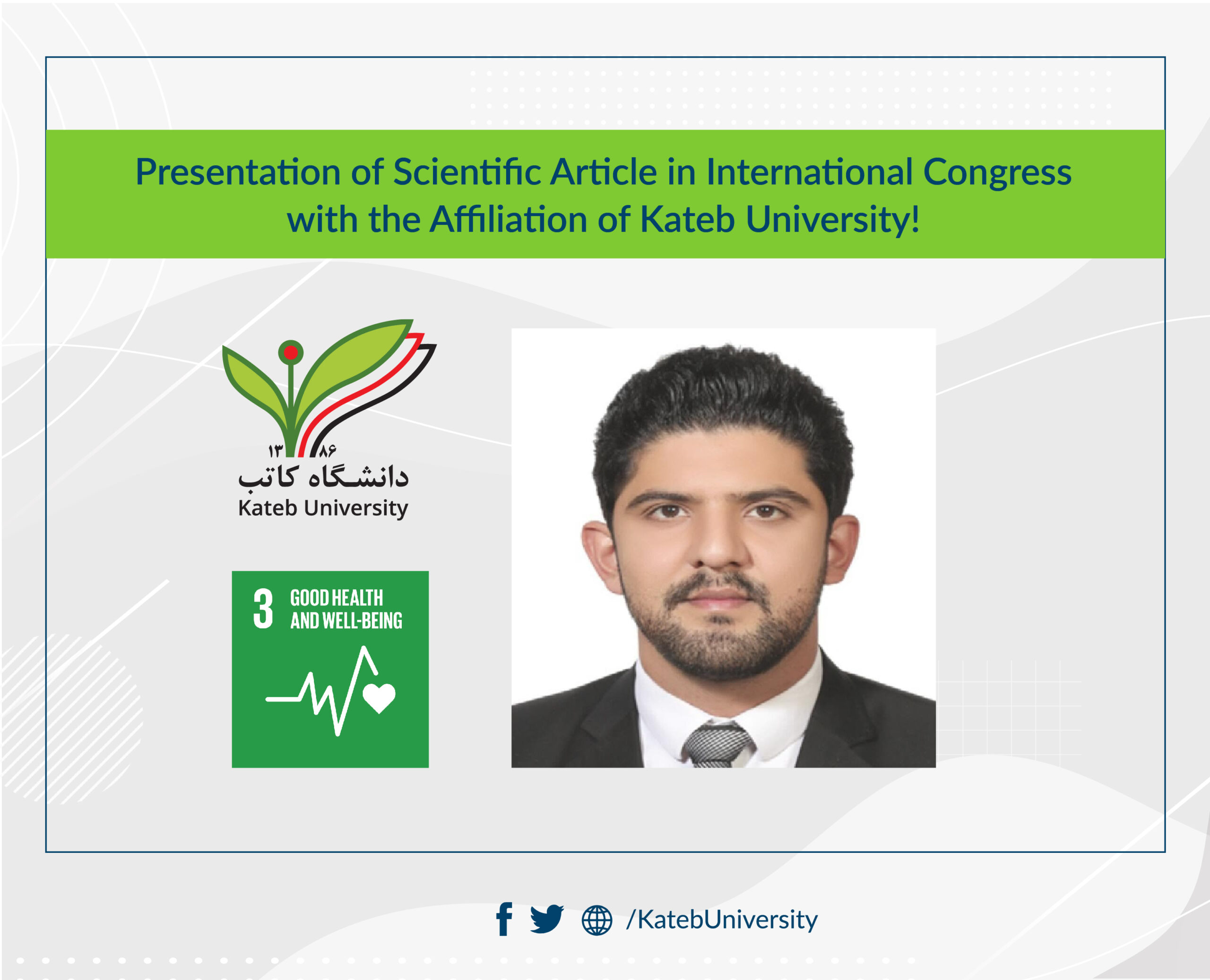In order to achieve the Sustainable Development Goals (SDG 3: Health and Well-Being), scientific article by Dr. Farzad Yousefi, a researcher at Kateb Research Center, entitled “Detection of tetracycline antibiotic based on reaction with TetX monooxygenase” was presented with the affiliation of Kateb University.
Summary of the article:
Tetracyclines are broad-spectrum antibiotics used against gram-positive and gram-negative bacteria. Tetracycline binds non-covalently to the ribosome, which inhibits aminoacyl-t RNA binding to the ribosomal receptor site, thereby inhibiting protein synthesis. Increased use of this antibiotic in food products such as milk, meat, poultry causes negative effects on human health. Examples of these side effects include: allergic reactions, increased resistance to antibiotics, liver damage. Some farmers add antibiotics such as tetracycline to milk for various reasons, including diseases of the mammary glands of cows or lack of hygiene in milk collection workshops. Antibiotics added to milk have an inappropriate approach for both the producer and the consumer. For example, in the production process, the presence of this substance leads to the lack of growth and activity of beneficial bacteria in milk processing, which as a result of the final product does not have the appropriate quality and rheology and the consumer suffers poisoning. Methods such as microbiological assay, ELISA, HPLC, LC / MS, CE are used to identify tetracycline antibiotics, but these methods require complex and expensive tools and it takes a long time to detect this analyte with these methods. Therefore, the development of rapid detection methods for tetracycline antibiotics is very important .The development of diagnostic method based on the interaction between TetX monooxygenase enzyme and tetracycline is an effective step in the rapid detection of this analyte.
In this study, the effect of TetX2 monoxygenase enzyme on tetracycline antibiotic was investigated in order to evaluate rapid tetracycline measurement methods.
TetX is a FAD-dependent monooxygenase that degrades a wide range of tetracycline analogues. TetX2 monoxygenase is isolated from the CTnDOT transposite contained in Bacteroides thetaiotaomicron. The molecular weight of this enzyme is 44 kDa, which catalyzes the selective hydroxylation of TC to 11 a-hydroxytetracycline through the participation of NADPH as a factor and O2 as an electron receptor.
Therefore, the reaction between TetX2 and tetracycline enzymes leads to the development of enzyme-based biosensors for rapid detection of tetracyclines.
Interested people can find the article here.

Comment is not allowed